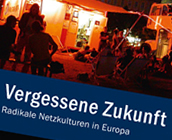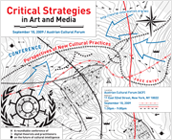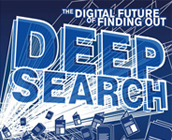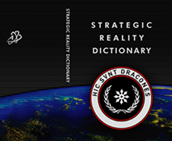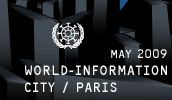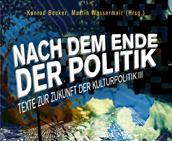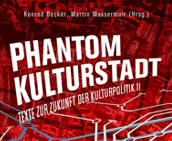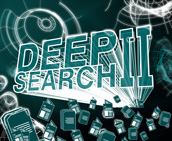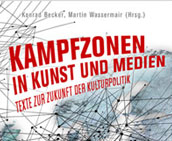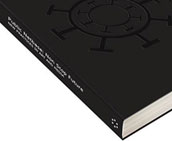Roundtable Conference: "Critical Strategies in Art and Media"
Profound changes related to global digital information and communication systems challenge the cultural heritage of the future and require independent cultural intelligence analysis. The World-Information Institute debates the future of art and culture in a fast-changing world and in a shifting economic and ecological environment.
Guy Debord, a key European twentieth-century thinker, once declared, "All aware people of our time agree that art can no longer be justified as a superior activity, or even as an activity of compensation to which one could honorably devote oneself." That was more than fifty years ago, and since then things have become considerably worse. Does art have any relevance beyond the role of the corporate style consultant or a decoration of digital product worlds? Is there any need for art beyond its function as status décor, tax-minimizing investment, or a special market sector?
Today the sacred aura and mythical uniqueness of the object, closely connected with the cult of beauty emerging with the bourgeois world, is still the dominant art form. The deeply ingrained economic logic that mystifies cultural creation and emphasizes unique individuality has never been overcome. Amidst all the pretensions of authenticity, the focus on meaningless "innovations" and "individual" personalities consistently produces market failures. Meanwhile the cultural peacekeeping industry of the military-entertainment complex makes inroads into the imagination and increasingly influences behavior at every level. At the same time the agonizingly dull myth of the Creative Cultural Industries, that they bring the fine arts in from the cold and into the productive forces of the economy, raises questions about dissent and critique. The bourgeois bohemian Creative Class confuses talent with a fetish for lifestyle technology and mistakes ignorance for tolerance. It isn’t just the finance world that’s ensnared in Ponzi schemes: exploited by finance to create meaning for their belief system, arts and culture develop bad practices and mechanisms of self-reinforcing silliness all by themselves.
By now gestures of rebellion have become the stuff of everyday marketing. In the supermarket of farcical Web 2.0 socialism, a naive off-the-shelf critique comes at a discount. Greenwashing and community kitsch are the order of the day.
An amalgam of postmodern perplexity and bourgeois disorientation in neoliberal market economies achieves and sustains an abysmal lack of vision. With the decline of postmodern theory and a growing weakness of neoliberal ideological hegemony, a serious reassessment of "critical cultural practice" as such is necessary.
What are critical strategies in the 21st century?
Steve Kurtz, of the seminal Critical Art Ensemble, a collective that has influenced new generations of artists and activists. The CAE realized a number of guerrilla science and art projects, from street performance to major museums. Their work spans the breadth of informed critical practice and includes a solid body of publications. Their most recent project on bio-technology and bio-warfare brought them years of legal harassment but also prompted a wave of international solidarity.
Peter Lamborn Wilson is a writer and essayist who commands a deep knowledge of the history of heretic, deviant schools of thought. An expert on religious studies and the alternate realities of an autonomous creation of knowledge, his influential and incendiary texts have also been published under the name Hakim Bey, a cult figure of the nineties underground rave and radical computer culture. Despite his status as a "cyber guru," he is a fierce critic of technology and avoids it.
Claire Pentecost is an interdisciplinary artist and writer who engaged a variety of media to interrogate the imaginative and institutional structures that organize divisions of knowledge. As a co-organizer of Continental Drift, she has extensively surveyed responses to the changing geopolitical order.
Ted Byfield, an editor, educator, and co-moderator of one of the more venerable mailing lists on digital culture nettime-l. His research extends into anomalies, ecologies, economies, governance, intellectual property, and hacking. He will provide expertise in subjects including law, mapping, P2P, policy, propaganda, security, and systems.
Amanda McDonald Crowley is one of the best-informed organizers and curators working with new media and art. Encouraging collaboration and cross-disciplinary cultural practice she has herself been involved in many areas from practice to policy on several continents beyond her native Australia. Currently she is the director of Eyebeam, one of the most high-profile art and technology centers in the US.
Jim Fleming is a key mover of the eminent Autonomedia in New York City, the main US publishers of radical theoretical works on media and politics, and an autonomous zone for critical art discourse. Autonomedia cooperates in an inter-activist exchange online forum and is a major source for contemporary critique. Its authors include Peter Lamborn Wilson and CAE.
Konrad Becker, a pioneer in media art and electronic music, is known for initiating seminal and controversial net-culture projects. A thinker and activist, he has curated and organized a large number of international conferences and exhibitions. His most recent book, "Strategic Reality Dictionary" published by Autonomedia, addresses issues of cultural agency beyond the tactical. He now runs the World-Information Institute in Vienna, doing critical research into culture and technology.

